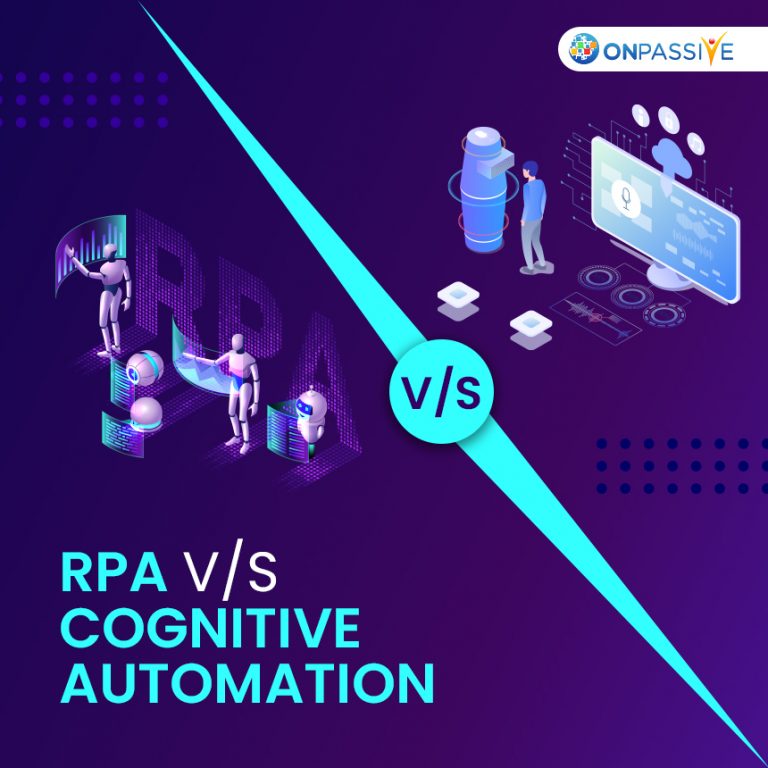
In the competitive Business world, automation is taking over many processes. Automating Business processes is making use of technology to reduce manual efforts and execute recurring tasks. It is used to minimize streamline processes. It is an intelligent approach to reduce costs and improve customer service.
The benefits of automation in business are enhances business performance and reliability, which improves your end-user experience. The ability to monitor processes helps you to find the errors and fix them. It enhances your workforce allocation with continual process improvement which in turn increases the response.
With the increasing demand for productivity, many businesses are opting to automate as many manual processes as possible. Business process automation is an essential tool to gain business control, and technological advancements are accelerating the evolution of business process automation.
Different types of automation processes available for businesses are
- Robotic process automation
- Cognitive automation
Robotic Process Automation (RPA)
Robotic process automation (RPA) is a technology which allows to configure a robot or a computer software to integrate and emulate actions of humans interacting within digital systems in executing a business process.
User interface is utilized by RPA robots to capture data and manipulate applications just as humans perform. They trigger responses, interpret and communicate with other systems to perform variety of repetitive tasks. RPA software robots makes zero mistakes and are always active.
RPA works and relies on basic technologies such as macro scripts, workflow automation and screen scrapping. It performs tasks with more accuracy with the use of software robots.
Cognitive Automation
Cognitive automation is a type of enterprise automation process that uses Artificial Intelligence (AI) and Machine Learning (ML) to automate complex tasks and enhance the power of Robotic process automation while improving consistency, reliability and accuracy of day-to-day operations.
Cognitive automation improves and extends range of actions that are correlated with RPA by leveraging Artificial Intelligence (AI) and provides organizations with advantages like customer satisfaction, cost savings and bring accuracy to complex business processes involving use of unstructured information.
It can find patterns, build its own rules and relationships between various data entities, and assist humans in making intelligent business decisions. It helps to make RPA even better with features like natural language processing, text analysis and optical character recognition when utilized correctly.
Key differences between RPA and Cognitive Automation Technologies
- Varied Sphere of Application
RPA technology can be used to automate repetitive human tasks with more precision using software robots. It is ideal for the tasks and processes where human intervention is not required. However, few business situations require human decisions, and in a few cases, it is challenging to make human decisions when much data is involved.
At this point, cognitive automation steps in as a subset of AI and helps automate more complex processes compared to RPA.
- Divergent Technologies
RPA relies on basic technologies such as workflow automation and macro-scripts. In contrast, cognitive automation uses advanced technologies such as data mining, semantic technology, text analysis and machine learning, making it easy for humans to take informed business decisions.
RPA depends on the deployment of framework and configuration and doesn’t require coding. On the other hand, cognitive automation needs extensive use of programming knowledge and uses machine learning.
- Methodology of Automation
RPA works on the if-then principle and is based on rules. It is often used to automate time-consuming tasks and is a process-oriented technology, whereas cognitive automation is a knowledge-based technology. It has its own rules and mimics human behaviour by applying Machine Learning (ML).
- Difference in Data Processing
RPA works on standardized data and can only process the data when available is a structured or semi-structured format. Other formats, such as unstructured data, need cognitive automation to find similarities between items learning from associations and build relationships.
- Distinctive Benefits
RPA helps businesses to test new ideas without paying heavily and enable employees to perform more complex and cognitive tasks. RPA reduces operational costs and improves staff productivity by taking over tedious tasks.
Cognitive automation helps automate specific business processes and is pre-trained. It adds to the analytical capabilities of human by providing them with cognitive inputs. It can continually learn and constantly adjust to the new environment as new data keeps entering business systems every day.
Choose the right automation technology for your organization
The decisions or choice of technology of your organization depends on the nature of your business process. RPA would be the right solution if your business process involves voluminous and structured data, and your company is a rule-based organization.
If your company deals with complex and unstructured data, which requires human intervention, cognitive automation would be the apt technology to automate your business process.
However, few organizations have a combination of both simple and complex tasks that require human intervention in their business processes. In such cases, a combination of both RPA and cognitive automation will be the best option to automate the business process and increase productivity. Combining these two technologies provides end-to-end automated solutions for your business.
Also, there is an option for business organizations to choose software vendors who can partner with organizations to suggest the right technology to automate their business processes.
Conclusion
Advancements in Robotics, Artificial intelligence (AI) and Machine learning (ML) are increasing with the new age of automation. Automation enables us to accomplish tasks with cognitive capabilities. Opting automation technologies such as RPA and cognitive automation for your business will significantly impact your business growth and productivity.


